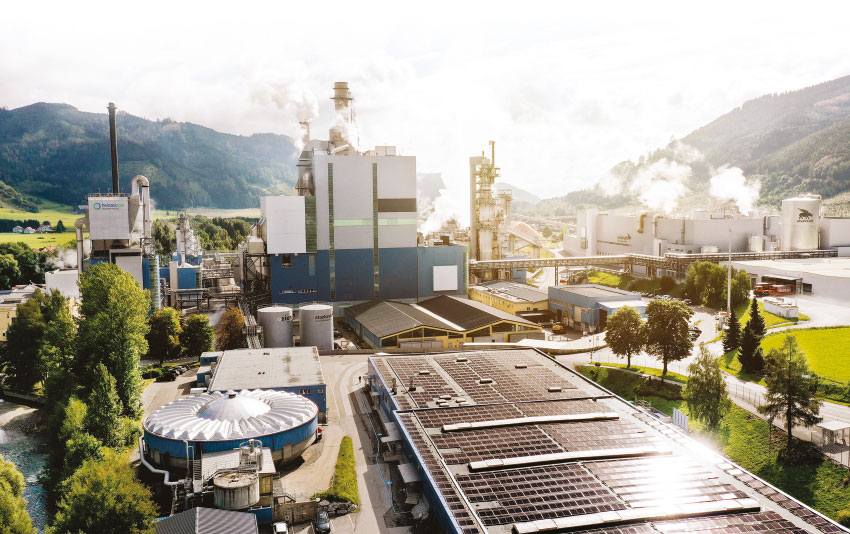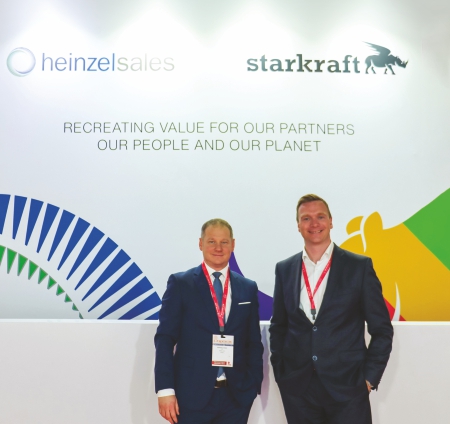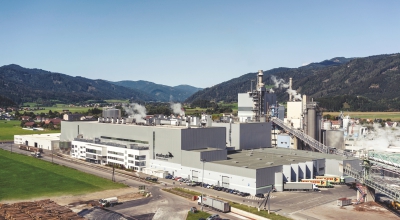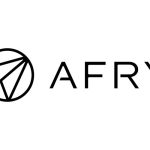Established in 1991, the foundation of the Heinzel Group was made by Mr. Alfred Heinzel. Today the group manufactures market pulp, packaging papers, and magazine papers at five production sites in Europe and trades in pulp, paper, recovered paper, and packaging solutions worldwide via 3 trading companies. Sustainability being prime for Heinzel Group, their fiver mills have been allocated investments of around EUR 1 billion for sustainable projects. They aim to become carbon neutral by 2050. They’re investing EUR 70 million to transform the paper machine (PM6) into a kraft paper machine, at the newly acquired Steyrermühl mill, starting production in May 2024. They are planning to have a full range of kraft papers which will be ready by the second half of 2024. In a recent interaction with Paper Mart magazine, Mr. Krunoslav Meic, CEO, Heinzel Sales, and Mr. Maximillian Ortner, Business Unit Manager, Starkraft, talked about the group, its journey, sustainable policies, and their plans for the Indian market.

Paper Mart: Please tell us about your group, its history, and your trading business.

Krunoslav Meic: The Heinzel Group is a family-owned group based in Austria, active in the pulp and paper business. Our biggest USP is that apart from having 3 trading companies within the HeinzelGroup, we also have 5 mills for pulp and paper production where. In total the Heinzel Group produce and trade around 3.5 million tons og pulp and paper products per annum. The first and oldest trading unit is Heinzel Sales, with more than 75 years of experience as a trading company for pulp and paper, trades approximately 2.5 to 3 million tons per year in more than 110 countries. We at Heinzel Sales cover of all pulp and paper grades grades, in addition to products from our sister companies we’re representing more than 100 external partners.
The second Heinzel Group trading company is the merchant company Europapier, the biggest merchant company in South-Eastern Europe . They trade around 1 million tons of various grades, mainly office papers, hygiene, and visual communication. Our third trading company is Bunzl & Biach, which is a collector of waste paper within Europe, collecting approximately 1.5 million tons per year. Their main goal is to provide and secure the waste paper for our production, and also trade the waste paper around Europe.
PM: Tell us about your paper mills’ production capabilities and products manufactured.
KM: Heinzel Group have 5 mills for pulp and paper production. When it comes to the production in our mills, we produce around 1.5 million tons of pulp and paper, covering a full range of grades In our Pöls mill, South Austria, we have a capacity of approximately 200,000 metric tons of kraft paper, which is 100 percent virgin fiber, covering the range from 20 to 100 GSM. Additionally, we produced around 500,000 metric tons of Northern bleached and unbleached Softwood Kraft Pulp. A significant amount of pulp produced in Pöls is consumed by the integrated Starkraft paper machines onsite. At the mill in Laakirchen, Austria we produced around 450,000 metric tons of recycled-based brown test liner fluting, containerboard grades for corrugating applications and around 350,000 tons of supercalendered publication paper grades that can be used for leaflets, magazines, etc. In the third mill in Raubling, Germany we have containerboard machines where we produce around 200,000 tons of kraft top liner and recycled-based containers. The fourth mill we have is in Estonia with around 200,000 metric tons of BCTMP (Bleached Chemi-ThermoMechanical Pulp) for the specialty grades which can be used for the production of cardboard grades, the production of printing and writing grades, or tissue. We sell around 70,000-80,000 metric tons per year of BCTMP from our Estonian mill, and around 70,000 metric tons of similar grade from the Swedish SCA pulp mill. One grade is hardwood, another is softwood-based BCTMP. It has quite a strong customer base. In addition the acquisition of the Steyrermühl mill was successfully closed January 1st 2024. This mill is located near to out Laakirchen mill and together the two mills are to grow together into a center for sustainable packaging papers, renewable energy and wood processing.
“In FY 22, we had a turnover of approximately EUR 2,777.4 million. Some of our biggest customers and partners in India are JK Paper, BILT, Mehali Papers, TNPL, ITC- PSPD, etc.”
PM: Sustainability is a crucial aspect of the paper industry. What is your sustainability policy and how do you ensure that your operations are sustainable and environmentally friendly?
KM: Sustainability is one of the most important topics for Heinzel Group driven by our owner, shareholder and group CEO, Mr. Sebastian Heinzel. In Europe, sustainability is not a choice, it is the standard. It’s not greenwashing, it’s the new way of thinking. Sustainability is in our core values, it’s the main focus in our strategy and we are highly committed to it. Our main issue is securing renewable energy. Recent happenings in Europe, such as the war in Ukraine and the lack of gas have given a push toward sustainability which has increased the investment of our group towards sustainable projects. In all the mills, investments of around EUR 1 billion have been allocated for sustainable projects and upgradation, especially for biomass boilers. These investments will reduce our dependence on gas. The projects are expected to be completed by 2030. We aim to become carbon neutral by 2050.
Many industries today, plastic or cement or other industries, are struggling to cope with the sustainability story. They are not aligned. The pulp & paper industry is the only industry that is fully aligned. For us, it’s not only pulp & paper, but our whole value chain is built up around the sustainable cycleIn general the pulp and paper industry is one that’s taking care of trees because it’s our future. It’s in our highest interest to take care of sustainability. There are also very high regulations, FSC, and BFC regulations to be followed currently.
Maximillian Ortner: I think sustainability is at the core of our business . As said by Mr. Krunoslav Meic we are aiming to go net zero by 2050. Also with the transition from Mr. Alfred Heinzel to Mr. Sebastian Heinzel, sustainability has gained even more momentum. Heinzel Group´s motto is recreating value.
Watch: Starkraft to Offer Capacity of 350,000 tons from May 2024
PM: Please tell us about your global market footprint, Indian presence and your three-pillar business model.
KM: When it comes to the products that we trade globally, we at heinzel sales cover the whole pulp and paper portfolio. We have 29 offices and liaison offices world wide and we sell in more than 110 countries and source from more than 40 countries globally. As Heinzel Groups global trading company, we are responsible for taking care of the distribution of all pulp and paper grades in Asia produced by our sister companies.
We have three pillars of business. The first one is where we source the raw materials and the pulp and paper grades from all around the globe to sell in India. The second pillar includes our inter-Asia business i.e. sourcing from Asia and selling within Asia. India plays a very important role as we source the raw materials and grades from India and sell them to various Asian countries including Malaysia, Indonesia, South Korea, etc. Here our liaison office in Chennai, works in close cooperation with our subsidiary office in Kuala Lumpur, Malaysia. The third pillar includes sourcing from India and selling outside Asia, mainly in Europe, North Africa, and the Middle East. We see that Asia has a huge growth potential and especially with the latest developments, we believe that Asia in particular India, has quite a good and competitive position for the future. Therefore, we want to be a part of this market as well.
PM: Tell us about your Indian operations, what grades you are selling to the Indian market, and what are your plans for the Indian market.
MO: Starting with the Starkraft portfolio, in 2019 we had zero sales in India. Since then we’ve been building a significant presence – a true success story – we’ve gone from zero to 100 rapidly! We are strongly committed to India where we currently offer our complete Starkraft portfolio, which includes kraft papers for a variety of applications, from flexible packaging to specialty grades.
Our long-term plans for the Indian market include seeking new partners to grow further and to support our partners in the future. On top of our well established paper machines PM2 and PM3 in Pöls, where we focus on kraft papers from 20 – 100 gsm, we will add a third machine in 2024.

With an investment of over EUR 70 million PM6 in Steyrermühl will be ready to start production in May of this year. For Starkraft this is a game changer. PM6 will allow us to produce highest quality kraft papers between 30 and 100 GSM. It will be a swing machine, which can produce both bleached and unbleached kraft papers. Our unbleached grade will be branded as natural.
With the addition of Steyrermühl´s PM6 Starkraft´s total installed capacity will grow to 350.000 tons. (200.000 tons in Pöls and 150.000 tons in Steyrermühl).
The most important thing for us is to grow with our existing clients and also to start relationships with new business partners.
“India is already our biggest overseas market. We are strongly committed to this country where we offer our complete Starkraft portfolio.”
PM: Give insights about your marketing strategy and clientele in the Indian market.
KM: India being an old and traditional market for us, the trade is very simple. It needs to generate business. Since we have expertise in quality maintenance, we have a strong representation in India. So for Starkraft, we have a team who has expertise in packaging and kraft papers and for publication, we have separate Indian representatives. For high-end sales, we need to make sure that all our mills and other external partners find the right end customers. If we need to use additional experts on the market, we employ them. But in general, as India is well known to us, we are interested in finding the right strategically fit customers.
Our main business began 25 to 30 years ago, and was at that time mainly concentrated on the pulp business. In FY 22, we had a turnover of approximately EUR 2,777.4 million. Some of our biggest customers and partners in India are JK Paper, BILT, Mehali Papers, TNPL, ITC- PSPD, etc. Currently, we have a pulp division and a paper division i.e. Starkraft which is very important. By entering into partnership agreements with different mills, we are trying to close the circle. We supply pulp to the customer and they produce cardboard grades or printing and writing, we cooperate with them to distribute and supply their paper within Asia or other markets. In addition we represent many Indian companies in some international markets, such as BILT, N R Agarwal, etc.
PM: How do you envision the future of the Indian paper market? What is your long-term plan?
MO: Starkraft´s long-term plan is to expand our footprint and to build and continue our success journey. India is already our biggest overseas market. There is significant demand for a good quality manufacturer and for a sustainable partner. And this is what we want to continue. We want to be in India and add value to the customers. We are seeing India as a very strategic market. We are here to stay and very happy with the ongoing business.
KM: We know that the growth is in India and hope for a fast development. This because we feel if India grows, the pulp and paper business will grow with it. we might have a different viewpoint on the Indian market compared to other suppliers. For us, India will be an important market within the next 10-20 years as the standards, demands, and consumer behavior are in constant development . Which will allow us to enlarge our product portfolio that we can distribute.



